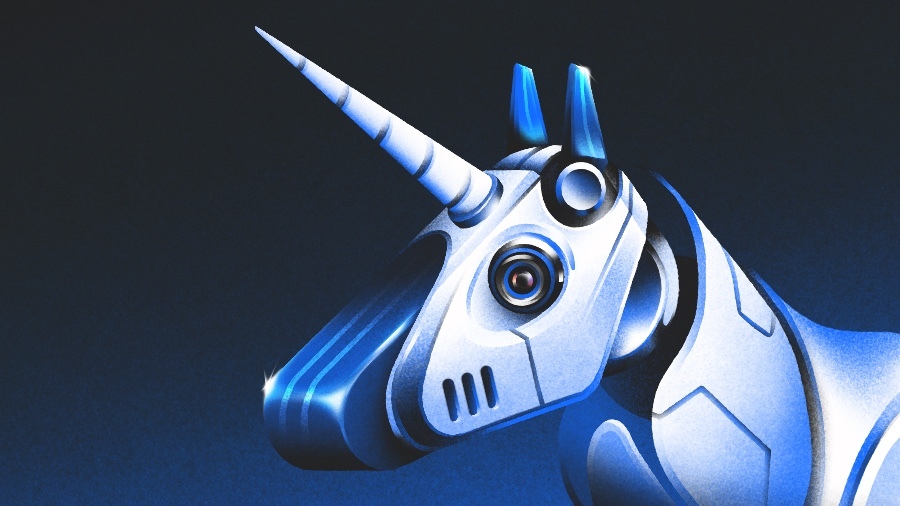As the venture market has significantly slowed, so has the pace of minting young startups as unicorns.
With valuations going down across the board, investors seem more wary than they have in the past few years about anointing a $1 billion-plus valuation to a company before its Series C.
Of the 47 unicorns minted through the first seven months of the year, only 18 of them joined The Crunchbase Unicorn Board after an early-stage funding round — defined as seed, Series A or Series B — an analysis of Crunchbase data shows.
That is a far cry from 2021, when 107 early-round funding startups were given a $1 billion valuation. Even last year, 77 such companies hit that valuation after an early funding.
At the current rate, only 31 early-stage funding startups will hit unicorn status this year, putting it on pace for the lowest count since 2019.
Valuation slashes
Of course, the numbers are not shocking, as venture capitalists have started to follow the lead of public investors and are putting more emphasis on profitability and positive cash flow. That is something often difficult for early-stage startups to reach, as many are barely in their go-to-market phase.
In general, private valuations have significantly declined — think Instacart and Stripe — preventing early-stage startups from even sniffing such heights (which may be a good thing).
Search less. Close more.
Grow your revenue with all-in-one prospecting solutions powered by the leader in private-company data.
The number of young startups to hit unicorn status quickly also would be a lot lower if it weren’t for two letters — AI.
The U.S. led all regions in early-round unicorns with nine, with China just behind with six. Half of those U.S.-based, early-round unicorns minted this year come from the generative AI sector, including:
- In March, Character.ai closed a $150 million Series A at a $1 billion valuation led by Andreessen Horowitz.
- In March, Adept AI raised a $350 million Series B led by General Catalyst and Spark Capital at a reported post-money valuation of at least $1 billion.
- In May, CoreWeave, an AI cloud infrastructure company, raised a $200 million Series B extension from Magnetar Capital — just weeks after CoreWeave raised $221 million — that valued it at $2 billion.
- In June, Typeface raised a $100 million Series B led by Salesforce Ventures 1 at a $1 billion valuation. The company’s AI platform helps with enterprise content creation such as product shots, blog posts, social media ads and job posts that meet brand specifications.
Other industries related to EV charging, solar, energy storage and mineral extraction also saw some young startups become minted unicorns in the year’s first seven months.
Perhaps the most unusual of all fast, early-round unicorns this year was the minting of Colossal Biosciences. The Dallas-based startup raised a $150 million Series B that gave it a valuation of more than $1 billion, per reports. The startup, which launched in 2021, is developing a de-extinction platform that could bring back species such as the Dodo bird and the woolly mammoth, and help with conservation and human health care.
Fast to rise, fast to fail
While early-round unicorn numbers are down, it also is important to remember unicorn numbers in general are down. While last year saw 311 total unicorns minted, there have been fewer than 50 so far this year through July.
Fast, early-round unicorns actually make up a greater percentage of all unicorns minted this year when compared to past years, as 38% of new unicorns in 2023 achieved that status in a seed through Series B funding round.
Last year saw the highest percentage ever, with 25% of all new unicorns being minted in early rounds.
Of course, getting minted a unicorn early does not mean a company has made it. The unicorn forest is littered with the likes of Gorillas and Jokr. Just this month, London-based virtual events platform Hopin — which hit unicorn status in a Series B in 2020 and eventually saw its valuation hit $7.75 billion — was bought for around $50 million by RingCentral.
Then there always is the story of e-scooter startup Bird. The company became a unicorn just months after launching in 2017 — riding the e-scooter rental craze — and now, after going public through a SPAC, has a market cap of about $20 million.
Finally, just last year at this time when we looked at recently minted early-round unicorns the name FTX US pops out as what can happen when investors’ fervor overruns due diligence. In fact, a year ago a number of crypto startups made this list — such as Miami-based Yuga Labs — whose valuations today are likely very different.
Undoubtedly there are some young startups that became unicorns fast on this list that will eventually fade, but the decreasing number of early-round unicorns is another sign of VCs facing reality.
Further reading:
- Specialized Cloud Provider CoreWeave Rides AI Wave To Another $200M Round
- Adept Latest AI Startup To Raise Big — Nabs $350M
- Character.AI Hits Unicorn Status With $150M Raise As AI Craze Continues
Illustration: Dom Guzman

Stay up to date with recent funding rounds, acquisitions, and more with the Crunchbase Daily.





![Illustration of a guy watering plants with a blocked hose - Global [Dom Guzman]](https://news.crunchbase.com/wp-content/uploads/quarterly-global-3-300x168.jpg)
67.1K Followers